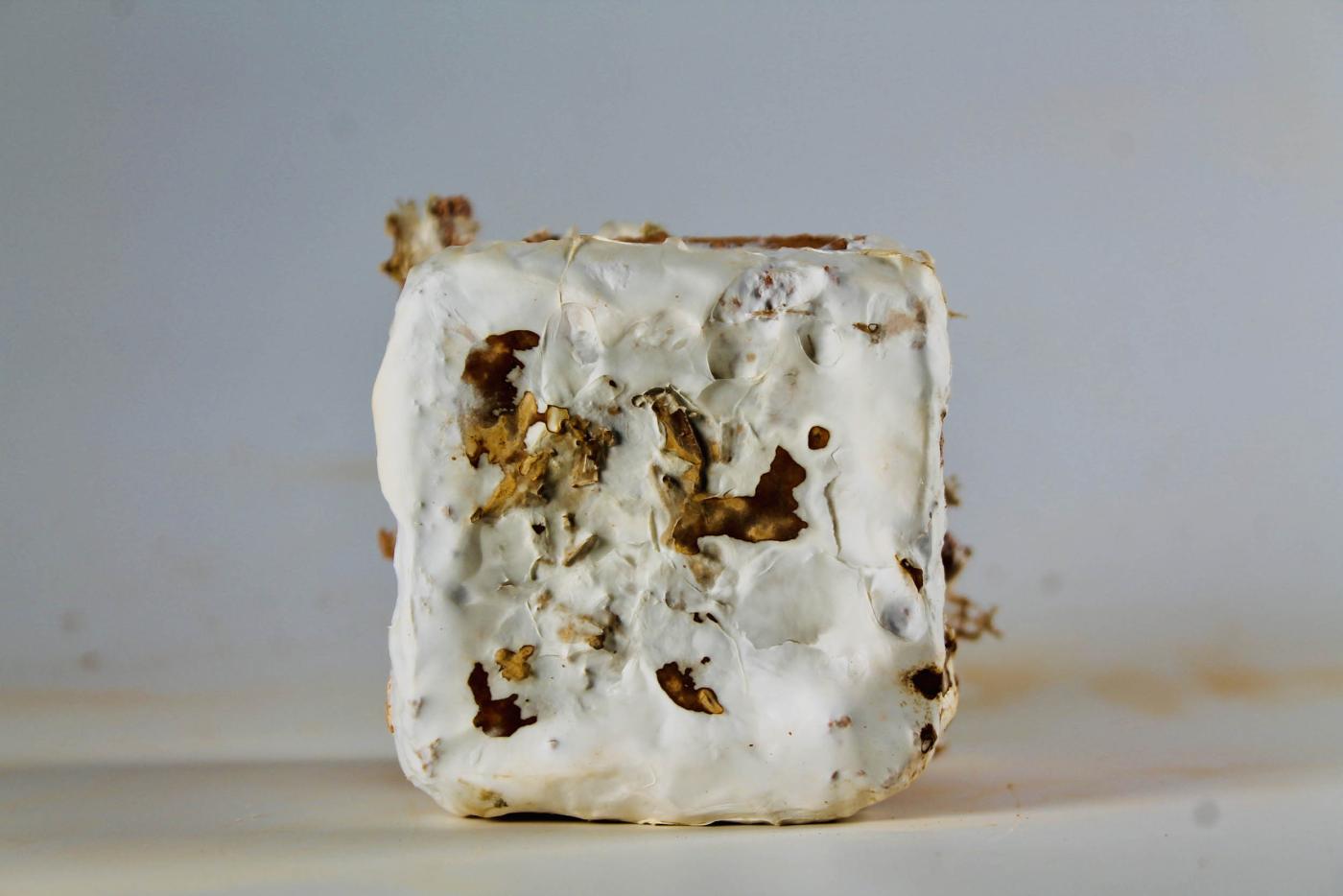COMPUTATIONAL TECTONICS LAB
ABOUT THE COMPUTATIONAL TECTONICS LAB—
The Computational Tectonics Lab’s founder and director Dr. Ehsan Baharlou explores novel design strategies to shift the design approach from material- and fabrication-centered design processes to multispecies design. His research interests include integrating design computation with the process of materialization. Through his research lab, he aims to mediate the cyber-physical interactions between complex forms and advanced manufacturing tools, shifting from a paradigm of abstracted computational design toward an integration of both physical (fabrication and production) and digital investigations.
DIRECTOR —
Ehsan Baharlou, Assistant Professor, Architecture [baharlou@virginia.edu]
COMPUTATIONAL TECTONICS LAB CURRENT PROJECTS —

ROBOTIC FABRICATION OF ARCHITECTURED MYCELIUM COMPOSITES FOR SUSTAINABLE CONSTRUCTION
This research aims to create high-performance composite materials for building applications by utilizing the unique properties of mycelium. Mycelium is the vegetative part of fungi that possesses characteristics that can produce bio-based, low carbon, and energy-efficient building materials. The team will use architected mycelium composites, which combine mycelium with other materials to create sustainable structures. The composites are created by growing mycelium around a framework made of materials such as sawdust, straw, or hemp. The team hypothesizes that altering the inner makeup of mycelium composites can improve their thermal, acoustic, and mechanical properties. The goal of this pilot study is to understand key factors that affect the performance of additively manufactured mycelium composites.
Project Team: Ehsan Baharlou (UVA, Architecture, PI), Osman Ozbulut (UVA, Engineering, Co-PI), Prasanna Balachandran (UVA, Materials Science and Engineering, Co-PI), Omoanghe Isikhuemhen (North Carolina Agricultural & Technical State University, Microbiology, Project Expert)
Funding: UVA Environmental Institute
Learn more about this project.

3D PRINTING OF ECOLOGICALLY ACTIVE SOIL STRUCTURES
For this project the research team is combining additive manufacturing’s speed, cost efficiency and low energy demands with locally resourced, bio-based materials. This design philosophy and approach aligns with a sustainable development practice called the circular economy. The research contributes to the potential to reduce the environmental impact of buildings through green walls, which incorporate vegetation into the outer surface of the structure. Their study aims to first assess the feasibility of direct printing of plant-supporting soil structure, and then utilize matric potential and volumetric water content measurements to quantify the influence of the printing process on plant germination and long-term viability. Ongoing research would study the influence of geometry on water retention characteristics of the freestanding structure, which would enable the design of a precise watering schedule to be developed for 3D printed soil for a given plant species.
Project Team: Ehsan Baharlou (UVA, Architecture, PI), David Carr (UVA Environmental Sciences, PI), Ji Ma (UVA, Materials Science and Engineering, PI)
Research Assistants: Spencer Barnes, Leah Kirssin, Elizabeth Needham
Funding: UVA 3Cavaliers Program, UVA Harrison Fellows Program
Learn more about this project.
SUPPORTED COURSES —
The Computational Tectonics Lab supports courses connecting curriculum and research. These courses include:
Advanced Research Studios (graduate and undergraduate) examining robotic additive manufacturing, robotic ecotectonics, behavioral robotic fabrication, non-standard mass timber structures, and wood proto-architecture.
Special Topics Seminars and Computation Seminars are also supported by the research and teaching of Dr. Ehsan Baharlou and the Computational Tectonics Lab.
Learn more about related courses.
RESEARCH AFFILIATIONS —
The Computational Tectonics Lab’s affiliated research partners include:
coming soon
